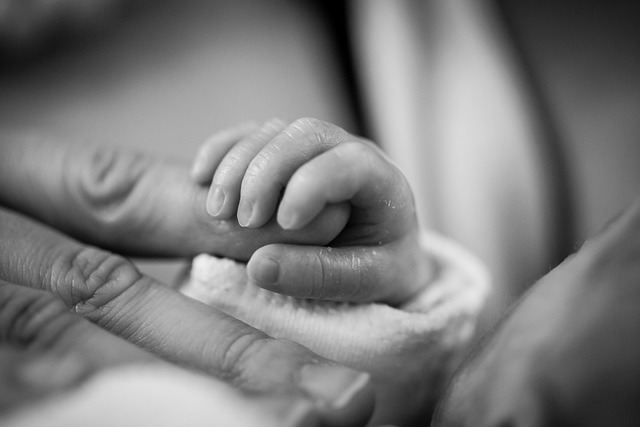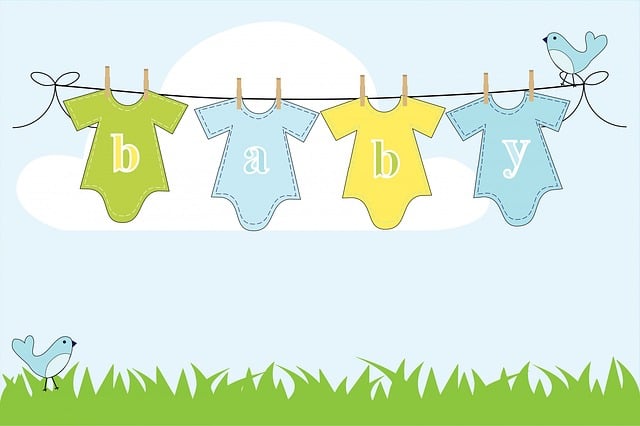To successfully navigate immigration procedures in the UK with a birth certificate, one must obtain a precise and certified birth certificate translation that adheres to Home Office standards. This translation must be conducted by a legal translator affiliated with professional bodies such as the Institute of Translation and Interpreting (ITI) or the Chartered Institute of Linguists (CIOL). The translator must accurately convey all original information on the birth certificate, include their contact details for authentication, and sign a statement affirming the translation's completeness and fidelity to the source document. This certified translation is essential for immigration applications in the UK, ensuring that the birth certificate will be recognized and processed without delay. Utilizing specialized translation services specializing in legal document translation for UK immigration is key to meeting these procedural demands efficiently while maintaining compliance with legal requirements. Remember to verify if additional paperwork like a Form Apostille is required for Hague Convention member countries, and ensure that the final translation is notarized to avoid any delays or issues in your immigration process. Keywords: Birth certificate translation UK, legal translation requirements, UK immigration documentation.
navigating the complexities of UK immigration often requires meticulous attention to detail, one crucial aspect being the accurate translation of official documents. This article delves into the necessity of birth certificate translation within the UK’s immigration framework, elucidating the legal mandates for such translations and guiding readers through the process of identifying and engaging with certified translators in the UK. With a focus on ‘birth certificate translation UK,’ we aim to empower immigrants by providing a comprehensive step-by-step guide, alongside a list of common pitfalls to avoid. Whether you are new to the immigration process or seeking to rectify previous errors, this article serves as an indispensable resource for ensuring your birth certificate meets all UK immigration requirements.
- Understanding the Necessity of Birth Certificate Translation for UK Immigration
- The Legal Requirements for Birth Certificate Translations in the UK
- Identifying Accredited Translators for Birth Certificate Translation in the UK
- Step-by-Step Guide to Translating Your Birth Certificate for UK Immigration
- Common Mistakes to Avoid When Translating a Birth Certificate for UK Immigration Purposes
- Navigating the Process: From Obtaining to Translating and Submitting Your Birth Certificate in the UK Immigration Context
Understanding the Necessity of Birth Certificate Translation for UK Immigration

When individuals embark on the process of immigration to the United Kingdom, they must navigate a series of procedural requirements set forth by the UK Home Office. Among these is the necessity for official documentation that attests to one’s identity and origin. A birth certificate is a fundamental document in this regard, as it confirms an individual’s birth and citizenship status. However, for non-English documents to be recognized and accepted by UK authorities, they must undergo a precise process of translation. This is where the service of certified birth certificate translations comes into play.
The UK Immigration system places stringent requirements on documentation to ensure accuracy and authenticity. A birth certificate translated into English for immigration purposes must be accurate and comply with the standards set by the UK government. The translation should be executed by a professional translator who is adept at both languages involved and familiar with the legal nuances required for such official documents. Such translations are not mere linguistic transpositions; they involve a certified process that includes affixing a statement of accuracy by the translator, which confirms that the translation is complete and true to the original document. This level of precision is crucial for the application to be processed without delay and for the individual’s immigration status to be properly established in accordance with UK laws. Seeking the services of a specialized birth certificate translation service in the UK ensures compliance with these regulations, thereby facilitating a smoother immigration experience.
The Legal Requirements for Birth Certificate Translations in the UK

When individuals require a birth certificate translation for immigration purposes in the UK, they must adhere to stringent legal requirements set forth by both the Home Office and the Professional Translators’ Association (PTA). The Home Office mandates that such translations be conducted by a professional translator who is either a member of the Institute of Translation and Interpreting (ITI) or the PTA. These translators must provide an accurate and complete translation, reflecting all information present on the original birth certificate. The translated document must bear a statement of accuracy, declaring that it is a complete and precise translation to the best of the translator’s knowledge and belief. Furthermore, the translation should include the translator’s contact details for verification purposes. This ensures that the birth certificate translation UK meets the legal standards required for immigration cases, facilitating the process and avoiding potential complications due to misinterpretation or inaccuracies.
Identifying Accredited Translators for Birth Certificate Translation in the UK

When navigating the complexities of immigration cases within the UK, individuals often encounter the necessity for accurate and certified translations of their birth certificates. The Home Office stipulates that such documents must be translated by a professional who is not a relative or someone who stands to benefit from the outcome of the case. To comply with these regulations, one must identify accredited translators who specialize in birth certificate translation UK-wide. These translators should be registered with a relevant body, such as the Institute of Translation and Interpreting (ITI), the Chartered Institute of Linguists (CIOL), or the Association of Translation Companies (ATC). They must also provide an official certificate of translation that confirms their credentials and the accuracy of their work. This certification is crucial for legal processes, as it assures the UK Home Office that the translated birth certificate reflects the original document’s content faithfully and is ready for submission as part of the immigration application. It is advisable to engage with a translator who not only possesses the required accreditations but also has expertise in the specific language pair relevant to your case, ensuring the highest level of precision and compliance with UK legal requirements.
Step-by-Step Guide to Translating Your Birth Certificate for UK Immigration

When immigrating to the UK, presenting an accurate and officially recognized birth certificate is a pivotal step in the application process. To facilitate this, your birth certificate must be translated into English if it is in another language. This translation is not just a linguistic task but a legal requirement that adheres to specific guidelines set by the UK government. The following step-by-step guide will ensure your birth certificate translation for UK immigration meets all necessary standards.
Initiate the process by securing a copy of your original birth certificate. Ensure it is a complete and authentic document, as any discrepancies or issues with the source document can lead to complications in the translation process. Next, identify a professional translator who is certified and recognized by the UK authorities. Such translators are often members of the Institute of Translation and Interpreting (ITI) or the Association of Translators and Interpreters (ATI) and have expertise in legal document translation.
The certified translator will then translate your birth certificate into English, maintaining the integrity and clarity of the original text. They will also provide a statement declaring that the translation is complete and accurate to the best of their knowledge. This statement, known as a certification or attestation, is crucial for its recognition by UK immigration authorities.
Upon completion, the translator will attach their contact details, their professional credentials, and a stamp or seal to authenticate the document. The translated birth certificate should then be sent to you alongside any necessary paperwork that substantiates the translation’s legitimacy, such as a Form Apostille if the original birth certificate comes from a country that is part of the Hague Convention.
Finally, ensure that all translations are completed and notarized before submitting your immigration application to avoid any delays or rejections due to incomplete or non-compliant documentation. Remember, the accuracy and legal validity of your birth certificate translation are paramount for a smooth immigration process to the UK.
Common Mistakes to Avoid When Translating a Birth Certificate for UK Immigration Purposes

When translating a birth certificate for UK immigration purposes, it is imperative to adhere to strict standards to ensure accuracy and compliance with Home Office requirements. Common mistakes often arise from oversights in the translation process that can jeopardize the success of an immigration application. One prevalent error is using uncertified or non-professional translators; the UK Home Office mandates that birth certificate translations be completed by a professional translator who is accredited and provides an official certification with their translation. Another frequent mistake is mistranslation or paraphrasing of legal terms, which can lead to misunderstandings and delays in the immigration process. It is crucial to maintain a word-for-word translation to preserve the original document’s intent and meaning. Additionally, failing to include all relevant details, such as the full name of the individual at birth, date and place of birth, and parental information, can result in application setbacks or rejection. Translators should ensure that their translations are complete and accurate, reflecting all data present on the original birth certificate. To avoid such pitfalls, engaging a specialized translation service that specializes in legal document translation for UK immigration purposes is advisable. These services often provide certified translations that comply with the stringent requirements set by the UK Home Office, thereby increasing the chances of a successful application and a smooth immigration process.
Navigating the Process: From Obtaining to Translating and Submitting Your Birth Certificate in the UK Immigration Context

When embarking on the journey of immigration to the UK, individuals are often required to present a birth certificate as part of their application process. This document is pivotal in establishing identity and citizenship, and as such, it must be accurately represented. The translation of a birth certificate in the UK context necessitates adherence to specific regulations; the translated version must be certified to ensure its authenticity. Prospective residents should seek out professional translators who specialise in legal document translation and are accredited by the UK government’s Home Office. These professionals not only guarantee the accuracy of the translation but also provide the necessary certifications that affirm the faithfulness of the translated content to the original. This certification is crucial, as it ensures that immigration officials can trust the birth certificate translation, thereby facilitating a smoother application process. Once the birth certificate has been accurately translated and certified, it should be submitted alongside the rest of the required immigration documents. Attention to this detail can significantly reduce processing times and alleviate potential complications, paving the way for a successful immigration journey within the UK’s legal framework.
When navigating the complexities of UK immigration, presenting a birth certificate translation that accurately reflects an individual’s origins is pivotal. This article has delineated the critical aspects of this process, from understanding the legal framework to identifying accredited translators proficient in birth certificate translation UK wide. It has provided a comprehensive guide and highlighted common pitfalls to avoid, ensuring applicants present their documentation accurately and effectively. By adhering to the outlined steps and best practices, individuals can confidently submit their birth certificate translations, thereby facilitating smoother immigration proceedings. Prospective immigrants should take heed of these guidelines to ensure their application is not hindered by translation errors or oversights.
